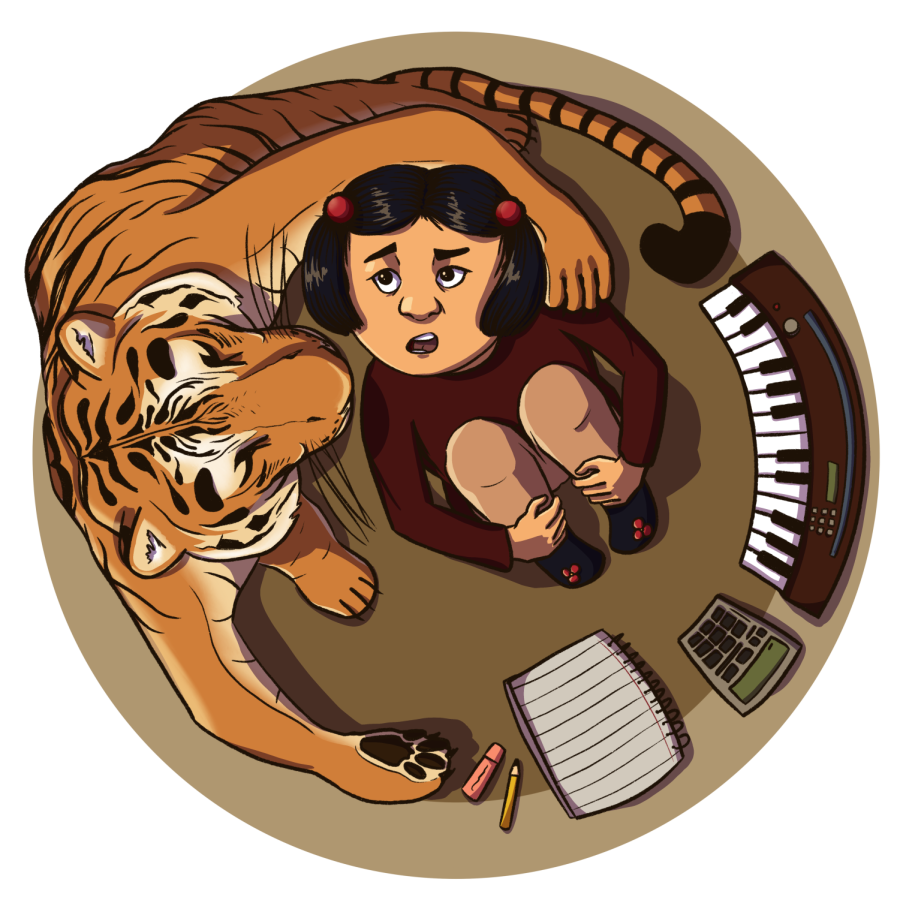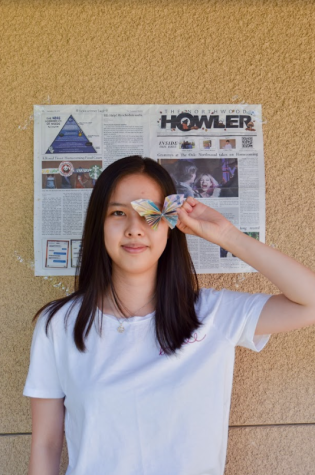Breaking the Tiger Mother Stereotype
CLAWS AND HEARTS: Due to the tiger mom stereotype, many misunderstand just how caring Asian parents can be, confusing authoritative parenting with authoritarian.
October 5, 2022
Playing piano since the age of four. Spending 10 hours a day on studying and completing homework. Listening to insults spew out for getting an incorrect answer on the latest math test. No free time, because any second spent playing games or meeting up with friends is deemed wasteful. Does this sound familiar?
Undoubtedly, “tiger moms” exist, overbearing Asian mothers who disregard mental health and micromanage their children to make sure they maintain no less than perfect grades and outstanding extracurriculars. However, not all Asian mothers utilize tyrannical parenting techniques and the untrue “tiger mother” stereotype reinforces the harmful model minority myth.
Authoritative parenting, where parents set strict rules and high expectations but also provide emotional support, doesn’t equate to authoritarian parenting, where parents only demand discipline. Tiger moms are viewed as authoritarian figures, but the vast majority of Asian parents are more similar to authoritative figures. According to the Asian American Journal of Psychology, after analyzing “samples of Hmong, Chinese and Korean American parents,” the study found that “parenting in each of these cultures is a mix of power-assertive type parenting and supportive parenting” while the “purely power-assertive type of parenting” was not common at all.
Instead of acknowledging the vast parenting techniques used by Asian parents, the stereotypical tiger mother parenting method is often compared to the more relaxed “Western” approach of allowing their children to pursue all the non-academic activities they want, emphasizing the psychological stresses from tiger mother parenting. Yet, both parenting styles have individual benefits and drawbacks and aren’t mutually exclusive.
In a Stanford study, researchers found that “both culture-centric approaches can be effective” and “both Asian American and European American students evaluated their mothers positively and felt supported by them.” Unless taken to an extreme level, strict parenting benefits students by helping them reach academic success and develop good character, and strict parents can also be affectionate and form strong bonds with their children.
The harsh parenting techniques of the tiger mother stereotype also leads to a depiction of all Asian American children as smart and successful. This model minority myth places extreme pressure on Asian children to reach those misinformed and uneducated expectations of high academic achievements, despite Asians being a very diverse group of people and individuals.
While current films like “Turning Red” have more realistic and relatable representations of the Asian American experiences, the main character’s mother still is a stereotypical tiger mom figure who micromanages her daughter’s schedule and doesn’t empathize with her academic struggles. When talking about tiger mothers or their children, rarely are the issues of the immigrant experience, racial isolation and poverty brought up.
An article from Learning For Justice points out the various Asian experiences through pay disparities, noting that “for every dollar the average white man makes in the United States, an Asian Indian woman makes $1.21 and a Taiwanese woman makes $1.16. A Samoan woman makes $0.62. A Burmese woman makes 50 cents.” Simply encapsulating all of these experiences under a single story of success denies each of these groups their full cultural and economic individuality, and prevents any efforts made to aid the struggles that only certain Asian subgroups face. Additionally, when trying to keep the model minority student image, Asian American children often don’t seek or are given academic or emotional guidance, resulting in a negative self-image for not fitting with the stereotype and high rates of suicide attempts.
Through movies, literature and media, Asian parents are stereotypically portrayed as unloving and controlling when in reality, Asian parenting is not so monolithic and the experience of Asian Americans are diverse. Children of strict parents should try to understand that parents want the best for them but are still navigating the world of good parenting, and they should communicate their struggles to foster a healthier relationship. After all, neither parent nor child is perfect; both are human.



![AAAAAND ANOTHER THING: [CENSORED] [REDACTED] [BABY SCREAMING] [SIRENS] [SILENCE].](https://thehowleronline.org/wp-content/uploads/2025/06/lucy-1200x800.jpg)






















































![AAAAAND ANOTHER THING: [CENSORED] [REDACTED] [BABY SCREAMING] [SIRENS] [SILENCE].](https://thehowleronline.org/wp-content/uploads/2025/06/lucy-300x200.jpg)